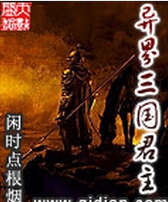君主论-the prince(英文版)-第3章
按键盘上方向键 ← 或 → 可快速上下翻页,按键盘上的 Enter 键可回到本书目录页,按键盘上方向键 ↑ 可回到本页顶部!
————未阅读完?加入书签已便下次继续阅读!
as beenraised to power。1。 So called …… in Italian …… from the duchy of Valentinois; conferredon him by Louis XII。CHAPTER IVWHY THE KINGDOM OF DARIUS; CONQUERED BY ALEXANDER; DID NOT REBEL AGAINSTTHE SUCCESSORS OF ALEXANDER AT HIS DEATHCONSIDERING the difficulties which men have had to hold a neight wonder how; seeing that Alexander the Great became themaster of Asia in a few years; and died whilst it was yet scarcelysettled (whence it might appear reasonable that the whole empire wouldhave rebelled); nevertheless his successors maintained themselves; andhad to meet no other difficulty than that which arose among themselvesfrom their own ambitions。I answer that the principalities of which one has record are found to begoverned in two different ways: either by a prince; with a body ofservants; who assist him to govern the kingdom as ministers by hisfavour and permission; or by a prince and barons; who hold that dignityby antiquity of blood and not by the grace of the prince。 Such baronshave states and their own subjects; who recognize them as lords and holdthem in natural affection。 Those states that are governed by a princeand his servants hold their prince in more consideration; because in allthe country there is no one who is recognized as superior to him; and ifthey yield obedience to another they do it as to a minister andofficial; and they do not bear him any particular affection。The examples of these two governments in our time are the Turk and theKing of France。 The entire monarchy of the Turk is governed by one lord;the others are his servants; and; dividing his kingdom into sanjaks; hesends there different administrators; and shifts and changes them as hechooses。 But the King of France is placed in the midst of an ancientbody of lords; acknowledged by their own subjects; and beloved by them;they have their own prerogatives; nor can the king take these awayexcept at his peril。 Therefore; he who considers both of these stateswill recognize great difficulties in seizing the state of the Turk; but;once it is conquered; great ease in holding it。 The causes of thedifficulties in seizing the kingdom of the Turk are that the usurpercannot be called in by the princes of the kingdom; nor can he hope to beassisted in his designs by the revolt of those whom the lord has aroundhim。 This arises from the reasons given above; for his ministers; beingall slaves and bondmen; can only be corrupted with great difficulty; andone can expect little advantage from them when they have been corrupted;as they cannot carry the people with them; for the reasons assigned。Hence; he who attacks the Turk must bear in mind that he will find himunited; and he will have to rely more on his own strength than on therevolt of others; but; if once the Turk has been conquered; and routedin the field in such a way that he cannot replace his armies; there isnothing to fear but the family of the prince; and; this beingexterminated; there remains no one to fear; the others having no creditwith the people; and as the conqueror did not rely on them before hisvictory; so he ought not to fear them after it。The contrary happens in kingdoms governed like that of France; becauseone can easily enter there by gaining over some baron of the kingdom;for one always finds malcontents and such as desire a change。 Such men;for the reasons given; can open the way into the state and render thevictory easy; but if you wish to hold it afterwards; you meet withinfinite difficulties; both from those who have assisted you and fromthose you have crushed。 Nor is it enough for you to have exterminatedthe family of the prince; because the lords that remain make themselvesthe heads of fresh movements against you; and as you are unable eitherto satisfy or exterminate them; that state is lost whenever time bringsthe opportunity。Now if you will consider what was the nature of the government ofDarius; you will find it similar to the kingdom of the Turk; andtherefore it was only necessary for Alexander; first to overthrow him inthe field; and then to take the country from him。 After which victory;Darius being killed; the state remained secure to Alexander; for theabove reasons。 And if his successors had been united they would haveenjoyed it securely and at their ease; for there were no tumults raisedin the kingdom except those they provoked themselves。But it is impossible to hold with such tranquillity states constitutedlike that of France。 Hence arose those frequent rebellions against theRomans in Spain; France; and Greece; owing to the many principalitiesthere were in these states; of which; as long as the memory of themendured; the Romans always held an insecure possession; but with thepower and long continuance of the empire the memory of them passed away;and the Romans then became secure possessors。 And when fightingafterwards amongst themselves; each one was able to attach to himselfhis own parts of the country; according to the authority he had assumedthere; and the family of the former lord being exterminated; none otherthan the Romans were acknowledged。When these things are remembered no one will marvel at the ease withwhich Alexander held the Empire of Asia; or at the difficulties whichothers have had to keep an acquisition; such as Pyrrhus and many more;this is not occasioned by the little or abundance of ability in theconqueror; but by the want of uniformity in the subject state。CHAPTER VCONCERNING THE WAY TO GOVERN CITIES OR PRINCIPALITIES WHICH LIVED UNDERTHEIR OWN LAWS BEFORE THEY WERE ANNEXEDWHENEVER those states which have been acquired as stated have beenaccustomed to live under their own laws and in freedom; there are threecourses for those who wish to hold them: the first is to ruin them; thenext is to reside there in person; the third is to permit them to liveunder their own laws; drawing a tribute; and establishing within it anoligarchy which will keep it friendly to you。 Because such a government;being created by the prince; knows that it cannot stand without hisfriendship and interest; and does its utmost to support him; andtherefore he who would keep a city accustomed to freedom will hold itmore easily by the means of its own citizens than in any other way。There are; for example; the Spartans and the Romans。 The Spartans heldAthens and Thebes; establishing there an oligarchy; nevertheless theylost them。 The Romans; in order to hold Capua; Carthage; and Numantia;dismantled them; and did not lose them。 They wished to hold Greece asthe Spartans held it; making it free and permitting its laws; and didnot succeed。 So to hold it they were pelled to dismantle many citiesin the country; for in truth there is no safe way to retain themotherwise than by ruining them。 And he who bees master of a cityaccustomed to freedom and does not destroy it; may expect to bedestroyed by it; for in rebellion it has always the watch…word ofliberty and its ancient privileges as a rallying point; which neithertime nor benefits will ever cause it to forget。 And what ever you may door provide against; they never forget that name or their privilegesunless they are disunited or dispersed but at every chance theyimmediately rally to them; as Pisa after the hundred years she had beenheld in bondage by the Florentines。But when cities or countries are accustomed to live under a prince; andhis family is exterminated; they; being on the one hand accustomed toobey and on the other hand not having the old prince; cannot agree inmaking one from amongst themselves; and they do not know how to governthemselves。 For this reason they are very slow to take up arms; and aprince can gain them to himself and secure them much more easily。 But inrepublics there is more vitality; greater hatred; and more desire forvengeance; which will never permit them to allow the memory of theirformer liberty to rest; so that the safest way is to destroy them or toreside there。CHAPTER VICONCERNING NEW PRINCIPALITIES WHICH ARE ACQUIRED BY ONE'S OWN ARMS ANDABILITYLET no one be surprised if; in speaking of entirely new principalitiesas I shall do; I adduce the highest examples both of prince and ofstate; because men; walking almost always in paths beaten by others; andfollowing by imitation their deeds; are yet unable to keep entirely tothe ways of others or attain to the power of those they imitate。 A wiseman ought always to follow the paths beaten by great men; and to imitatethose who have been supreme; so that if his ability does not equaltheirs; at least it will savour of it。 Let him act like the cleverarchers who; designing to hit the mark which yet appears too fardistant; and knowing the limits to which the strength of their bowattains; take aim much higher than the mark; not to reach by theirstrength or arrow to so great a height; but to be able with the aid ofso high an aim to hit the mark they wish to reach。I say; therefore; that in entirely new principalities; where there is anew prince; more or less difficulty is found in keeping them;accordingly as there is more or less ability in him who has acquired thestate。 Now; as the fact of being a prince from a private stationpresupposes either ability or fortune; it is clear that one or other ofthese two things will mitigate in some degree many difficulties。Nevertheless; he who has relied least




